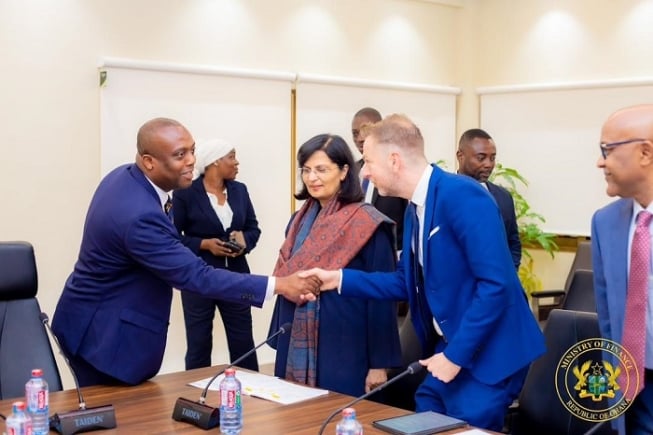Ghana is embarking on an ambitious journey towards vaccine self-sufficiency by 2030, a goal that promises to reshape the nation’s healthcare landscape and stimulate economic growth. Central to this initiative is the establishment of a cutting-edge pharmaceutical manufacturing hub in Accra, a project poised to transform Ghana into a regional leader in vaccine production and significantly reduce its reliance on imported vaccines. This strategic move is not merely about achieving health independence; it’s also about creating thousands of jobs, adding value to local resources, and driving broader economic activity, solidifying Ghana’s position as a key player in the West African pharmaceutical sector.
The government’s commitment to this vision is evident in its decisive actions to bolster the nation’s healthcare infrastructure. The removal of the spending cap on the National Health Insurance Scheme (NHIS), injecting a substantial GH¢30 billion into healthcare delivery, underscores this commitment. This significant financial boost will ensure timely access to essential health services and pave the way for Ghana’s transition from GAVI support by the target year of 2030. This financial commitment sends a clear signal about the government’s prioritization of the health and well-being of its citizens, laying a solid foundation for the ambitious vaccine self-sufficiency project.
The forthcoming pharmaceutical hub, developed in collaboration with GAVI, the Global Alliance for Vaccines and Immunisation, is not just a manufacturing facility; it’s a symbol of Ghana’s ambition and its commitment to building a robust and resilient health system. This hub is expected to not only generate employment opportunities but also enhance the value of local resources, contributing to a more diversified and vibrant economy. This multifaceted approach, combining health security with economic development, positions Ghana as a model for other nations seeking to strengthen their healthcare systems while simultaneously fostering economic growth.
Ghana’s progress in immunization efforts, particularly its impressive reach among women, has garnered international recognition and praise. This achievement, attributed to the nation’s long-standing partnership with GAVI and the trust in its health system, is a testament to the effectiveness of collaborative efforts in strengthening healthcare delivery. The ability to reach and vaccinate a significant portion of the female population highlights the strength of the health system’s community engagement and outreach programs.
GAVI CEO Dr. Sania Nishtar commended Ghana’s accomplishments in vaccine delivery, particularly its growing coverage among women, acknowledging the pivotal role of trust in the healthcare system in achieving such success. Dr. Nishtar’s endorsement underscores the international recognition of Ghana’s progress and its potential to become a model for vaccine delivery and health system strengthening in the region. While expressing GAVI’s readiness to support Ghana’s journey towards vaccine independence, Dr. Nishtar also emphasized the critical importance of sustained funding to maintain the momentum and safeguard the gains made in the health sector, cautioning against complacency that could jeopardize the progress achieved.
As Ghana prepares to transition from GAVI support, the pharmaceutical hub stands as a cornerstone of the country’s health sovereignty agenda. This ambitious project is not just about manufacturing vaccines; it’s about building local capacity, ensuring access to essential medicines, and ultimately, securing the health and well-being of the Ghanaian people. The hub symbolizes a significant step towards self-reliance in healthcare, a move that will not only strengthen Ghana’s health security but also contribute to its economic prosperity. This transition represents a significant milestone in Ghana’s journey towards a more resilient and self-sufficient healthcare system.














